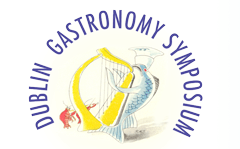Start Date
28-5-2020 7:15 PM
End Date
28-5-2020 7:30 PM
Description
“Innovation and disruption are ideas that originated in the arena of business but which have since been applied to arenas whose values and goals are remote from the values and goals of business.” (Jill Lepore)
Stories of food have been central to concepts of disruption from the dawn of time. It’s human nature to “make lemonade out of lemons,” - to use food metaphors and stories to spin the inevitable often traumatic experiences of change naturally occurring or intentionally engineered. This year’s theme encourages contemporary gastronomic interpretations of Clayton Christiansen and others’ business theory that “disruption” is essential for innovation and growth. The problem with this story is that it underplays the costs to real persons incurred when businesses (that is, the people who depend on them for their livelihood) must fail in order for productive innovation to emerge. But many food-related myths of disruption address precisely the cost – the suffering, even violence accompanying growth and change: exile from the Biblical Garden of Eden for eating the forbidden fruit of the Tree of Knowledge; harming our fellow beings when we cut down trees for shelter and dig up sweet potatoes to eat in Maori myth; death which separates us from our loved ones and them from us in the lyrics of “The Parting Glass;” and the trauma of slavery and sexual violence recounted in The Cooking Gene, Michael Twitty’s culinary history of Southern African American cuisine. I want to tell these stories at this symposium on food and disruption.
DOI
https://doi.org/10.21427/q000-6m85
Included in
Gastronomic Myths of Disruption
“Innovation and disruption are ideas that originated in the arena of business but which have since been applied to arenas whose values and goals are remote from the values and goals of business.” (Jill Lepore)
Stories of food have been central to concepts of disruption from the dawn of time. It’s human nature to “make lemonade out of lemons,” - to use food metaphors and stories to spin the inevitable often traumatic experiences of change naturally occurring or intentionally engineered. This year’s theme encourages contemporary gastronomic interpretations of Clayton Christiansen and others’ business theory that “disruption” is essential for innovation and growth. The problem with this story is that it underplays the costs to real persons incurred when businesses (that is, the people who depend on them for their livelihood) must fail in order for productive innovation to emerge. But many food-related myths of disruption address precisely the cost – the suffering, even violence accompanying growth and change: exile from the Biblical Garden of Eden for eating the forbidden fruit of the Tree of Knowledge; harming our fellow beings when we cut down trees for shelter and dig up sweet potatoes to eat in Maori myth; death which separates us from our loved ones and them from us in the lyrics of “The Parting Glass;” and the trauma of slavery and sexual violence recounted in The Cooking Gene, Michael Twitty’s culinary history of Southern African American cuisine. I want to tell these stories at this symposium on food and disruption.
